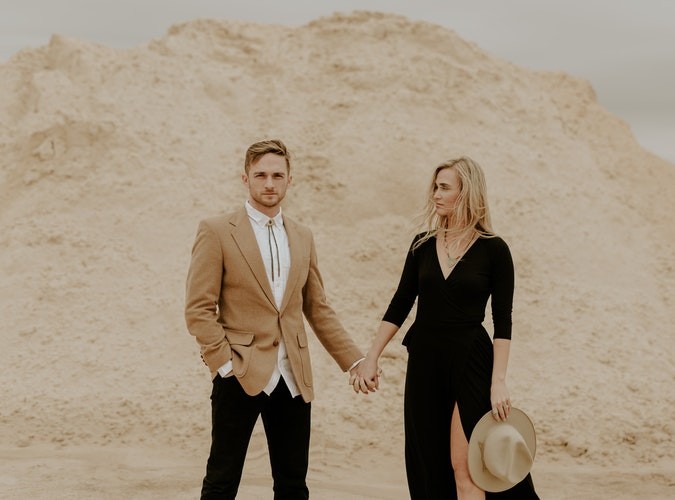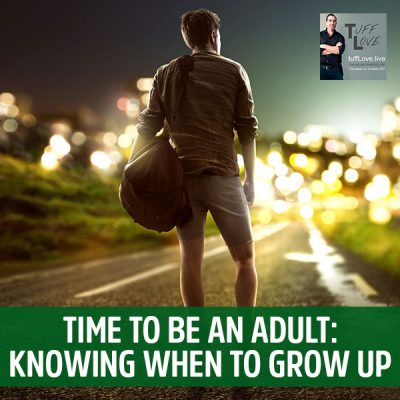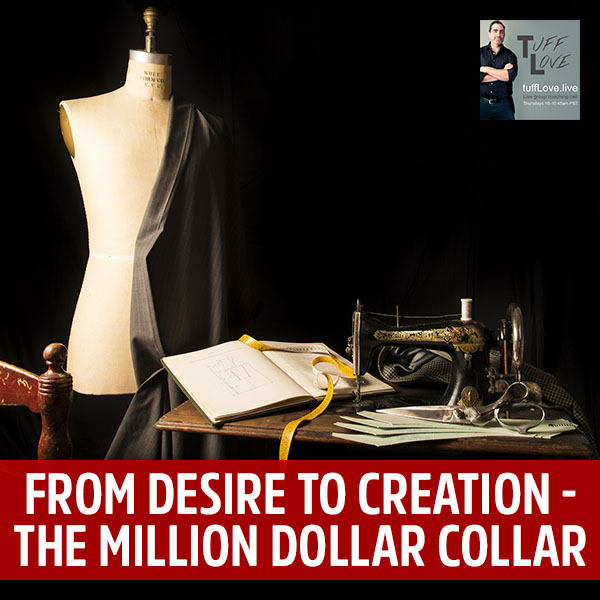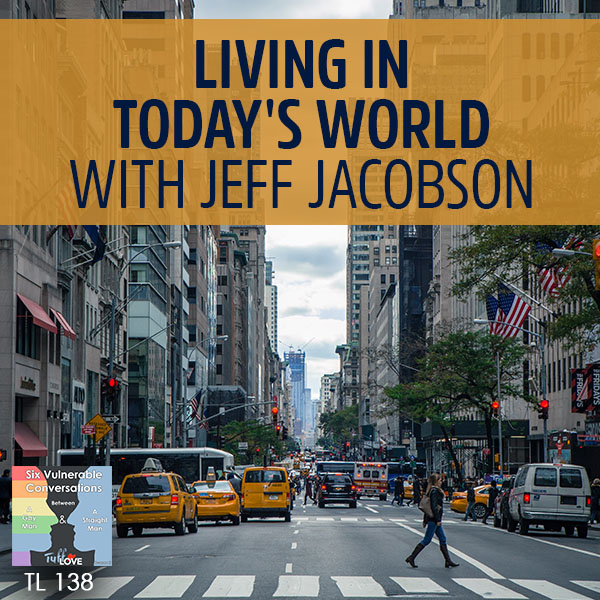
129: Brains over Blonde with Anna Wood
May 1, 2018
Many women struggle with losing themselves in relationships. When they’re single, they can feel clear and connected to their sense of self and direction, yet when in a relationship, they lose connection to their own desires and collapse into the reality of the person they are with. Anna Wood, founder and CEO of Brains Over Blonde, says being raised watching Disney movies, women are conditioned to believe that in order to find love, on some level, they need to be saved. Brains Over Blonde is a feminist lifestyle platform for women who refuse to choose between femininity and success. Discover how women create empowered relationship dynamics where they are able to show up in their power, boundaries, and desires, and how they craft relationships on their own terms and not simply play into the role that Walt Disney and modern culture has crafted for them.
—
I’m very excited to have Anna Wood of Brains Over Blonde on the show. I saw Anna through a podcast where they say, “I’ll be your guest.” I liked her bio and what she stood for, so it was a great show for me to connect to her and hear her viewpoints around the concept of women empowerment, how to be feminine inside business, and a lot of the social struggles that the genders are dealing with. I love that in the middle of it, she said, “Forgiving, forgiveness, connection, doing things to change society together rather than antagonism,” which is what I preach as well. Thank you so much, Anna.
129: Brains over Blonde with Anna Wood
I’m here with a special guest, Anna Wood. I’m very excited to have her on the show to talk about the concept of women’s empowerment. She is the Founder/CEO of Brains Over Blonde, a feminist lifestyle platform for women who REFUSE to choose between femininity and success. Anna is a Google alumnus with a Stanford MBA, a serial entrepreneur, content creator, Feminist. As a sales/marketing lead in Silicon Valley, she’s worked with major brands such as Netflix, Expedia, and Airbnb. Now, as a self-described female empoweress, she helps other women carve out amazing careers and cultivate fearless lives. She’s appeared in the Wall Street Journal, Business Insider, The Huffington Post, BuzzFeed, and Bustle. Welcome, Anna. It’s great to have you.
Thank you. Great to be here.
You’ve had an interesting life career path. Maybe you want to give the audience a few tidbits of how you went from Stanford MBA to empoweress.
Definitely not the typical Stanford post-MBA career. I grew up in Silicon Valley, so I was always surrounded by people starting companies. I remember knowing that I wanted to be an entrepreneur in kindergarten. That was seated in my mind very early, but I didn’t know exactly what I wanted to do. I was starting little businesses here and there, starting in elementary school. Once I got to high school, I started to have a lot of body image issues. I started to think that I couldn’t do certain things because I was a woman, something that I had never thought about before. Once I got to college, I was at UC Berkeley, where it’s a hippie school where you can design your own major. Since I had started getting so interested in female empowerment, I designed my own major and wrote my thesis on making diversity in the workplace a strategic advantage.
I thought about taking my whole career in that path right out of college, but instead I decided to go to Google because I didn’t know what I wanted to do, and I thought it would be great to be surrounded by other smart people that like to get shit done. I was there for four years, learned a ton, but definitely it was not passionate about online advertising. I’m a very passion-driven person, so I started taking on a number of side projects. I was a health and wellness coach and then I also taught Unconscious Bias, which is Google’s diversity training program. When I got to business school at Stanford, I applied with the notion that I would start maybe my own independent diversity training program that went into other companies, and I was building the business plan for that. Meanwhile, I’m interning at The League, which is a dating app. The reasons I went to work there is because Amanda Bradford, the CEO, is a bad-ass power woman and I wanted to learn from her. I had never had a female boss before.

Brains Over Blonde: Many men say that they’re interested in dating a high-power woman but in reality, the data doesn’t always show that.
While I was working there, I got interested in the data, who is matching with who. Many men say that they’re interested in dating a high-power woman but in reality, the data doesn’t always show that. I started this equal partnerships blog for fun. I didn’t think anyone would see it but I had a couple of posts go a little bit viral and all of a sudden, it clicked in my head. This was my second-year business school now like, “This is the business.” I can reach more women through social media and blogging and video than I can through corporate training programs, which no one likes doing those anyway. This is how young women are absorbing information these days.
I took down that blog immediately and started from scratch, treated it like a real business this time, and came up with the concept of Brains Over Blonde, which is all about ignoring this whole dichotomy we have in society about having to choose between femininity and success, which is something that I’ve faced throughout my entire career. Brains Over Blonde is all about empowering women and coaching women to be their best selves and achieve their dreams, not by fitting into a man’s world, but by creating their own world.
I talk to a lot of other coaches, I talk to a lot of women, so let’s go into one of the main things I want to talk about. A woman is in the workforce, and there’s a lot of conversation about women having challenges remaining feminine, their femininity, especially being in a man’s dominated industries, technology, medicine, and engineering. When a woman wants to keep her feminine side but being in a masculine dominated system, where do you see and how do you recommend and what’s the best way to handle that dilemma?
In the past, the advice that I always got as a woman and most professional women get is not to be too showy. Not to maybe express your style, not to wear certain colors, not to wear high heels or to wear high heels, not to wear makeup or to wear makeup. Even when I was in business school, I had a career counselor tell me I should wear my hair back and I should wear my glasses. I never wear my glasses. I don’t even have an updated prescription for my glasses. That’s bullshit because we’re not going to change anything by doing what we’ve always done, which is to mold women into what men maybe see as less threatening or less distracting.
The other reason women will do that is because they feel like they’re not taken seriously if they are too feminine, yet it’s such a fine line because women are also accused of being bossy and all of these things when they embrace more masculine qualities. I believe personally that you should dress however you want and however you define femininity is fine with me, but I am sick of women changing who they are, changing how they dress or how they speak or act at work simply because they want to fit into a man’s world. It shouldn’t be a man’s world. The more that women stay true to who they are as they’re advancing in their career, the more often we see that, the more that will become the norm.
Let’s talk about this concept of men feeling threatened by women in power, women dressing as they want, women being women. Then there’s this little thing that happened to Tony Robbins. One thing he talked about was a very successful CEO didn’t hire an attractive woman out of fear of Me Too. How does a woman who was getting mixed messages, “I want to be myself, I want to be true,” and, “I’m not going to get the gig if I’m too much of a woman”?
There are so many of these scenarios that I think about every single day and it always, for me, boils down to, “We’re not going to change anything by doing what we’ve always done,” which is changing ourselves. We have to stay true to who we are. If someone wants to be an asshole and not hire you because you’re too attractive, you don’t want to work for them anyways. People that are doing stuff like that are getting exposed. Tony Robbins faced a huge backlash for what he said. At the same time and this is something I talk about very often with women, we have to be more forgiving too. We are at this point of transition in our society where men are not only feeling intimidated but are feeling pretty scared because there are a lot of really great men out there that are feminists, that they do believe in equality, but they are terrified of saying or doing the wrong thing that it almost feels like they’re an opposition, but they’re just scared. We have both sides, if you want to call it sides. All genders need to be forgiving and understanding and open to conversation, open to feedback, while we’re navigating this new world.
Let’s break this down into a pragmatic, theoretical situation. You’re coaching a woman who wants to remain feminine in a male-dominated industry that she’s in. She starts to dress how she wants to dress, to be who she is, and starts to get negative feedback either overt or covert. Then she feels that fear of, “What if I’m doing this wrong?” or, “What if this is going to hurt my career?” What is the pragmatic thing you’d tell her? Besides, “We can’t keep doing what we’re doing,” do you have any practical advice on how to sustain or handle negative impact from men and other women in the job?
I will say as a corollary to that, being yourself and dressing how you want to dress as a woman, the dress is just one part of it, but there’s a fine line between doing that and being inappropriate. Just like a guy wouldn’t wear a shirt to work, you can’t wear a bra to work. You have to still be appropriate at work. I was on a sales trip back at Google and was basically told that I was sent because they thought my looks could close the deal. A lot of times, men might think that that’s a compliment, but it’s incredibly insulting. It takes away all my power and all of my actual skills as a salesperson and boils it down to the way I look. As I close the deal, people are going to think that that’s why. That’s what is insanely inappropriate.
What I do when I’m coaching women is role play these conversations because it is not easy to bring this thing up, whether you’re bringing it up directly to the person that said something or whether you’re talking to HR or considering leaving your company, it’s going to be uncomfortable. I say both men and women, just accept the discomfort and practice these conversations, educate yourself, and boil it down to the facts rather than the personal emotions and examine your own behavior. Maybe there is something that you are doing that is inappropriate. Maybe there is a kernel of truth to what someone might be saying, and then boil it down to that fact and then boil it down to other facts. Maybe they’ve never seen a woman in your position at your company before and they don’t know what that looks like, asking them questions, and asking them to see where they’re coming from.
It is on such a case-by-case basis, but the most important thing is to ask questions, be open-minded, accept discomfort, accept that people are going to make mistakes, and making a learning opportunity out of it. The other thing is it’s much easier to confront if you’re not in the middle of it. No matter what gender you are, if you see someone make a comment that might be a micro-aggression or might be a gendered comment, stand up for that person on their behalf. It’s so much easier for you to do that than for the actual person to do it. Usually when you do that, you only have to do it once. People remember it and 95% of people are going to take that lesson and not do it again.
That’s a major issue as well, is that people see gendered or minimizing or racist comments and they don’t want to get the attention of the person making the comment so they bypass it, let it go, and in that, its propagation of this negativity in the world that continues to happen.
Think about all the times you were in a meeting and a woman says something, every woman can relate to this, then having a guy say it two minutes later and getting all the credit. You don’t have to be a part of it and you don’t even have to be direct about it. You can say, “I agree with that when Mary said it too,” or, “Can we go back to what Mary was saying?” The same thing goes with racial and any other differences that we all have, being open-minded to the fact that we do all have these internalized biases and if someone points out something that you did that wasn’t right, being okay with having the conversation about that, it doesn’t mean you’re a bad person. This is an opportunity for growth so you don’t do it again.
Let’s switch to this term ‘mansplaining’, which is probably three or four years old, but maybe a little bit older. I’ve heard about it, I’ve talked with people about it, but I’d love to hear your hit around it, your thoughts around it, and why this happened. How does it feel as a woman when this happens? How does it impact you? What’s the best way to handle a man who’s mansplaining? How do you get them to be aware that they’re doing this?
If you don’t know what mansplaining is, it’s the mash-up between man and explain. It’s the idea of a guy explaining something to a woman, but she already knows, in a patronizing way. It can be very subtle or it can be very overt. I’ve come to believe that the term ‘mansplaining’ isn’t of itself a sexist term because it can happen to anyone, but women definitely experience this very frequently and every woman I talked to could talk about this for hours, all the examples of times this has happened. I would say the range of emotions it feels are between devastating and demeaning and funny sometimes. I’ve had men explain periods to me incorrectly and it’s laughable sometimes, but sometimes it can be offensive, like having a man correct you or talk over you and explain something to you in your area of expertise. Maybe you wrote a thesis on it and then they’re explaining it to you, you can’t help but feel very diminished and under-valued.
Frequently what happens is that the woman shuts down. Women characteristically are not as confrontational, so oftentimes, the woman will say nothing and you don’t know what you’re missing out on from her. You’re missing out on her expertise, her trust in you, and you’re probably not going to have the best relationship after that. What I would say to men, and to anyone that may jump in too soon to explain things, is to ask the question first. “Are you familiar with this? Would you like me to explain this to you?” rather than diving right into it. If you are mansplaining and you get called out, know that this is a real thing, even though it’s a silly term, and come from a place of wanting to understand. Empathize with her. When men are called out for this, they are much more aware of it afterwards. Most men don’t want to mansplain and they don’t know that they’re doing it. If women can also come from a place of empathy when they’re confronting it, if anyone that witnesses it of any gender, the more we can talk about it and put it out there, it’ll start happening less and less because I don’t think most people want to be a mansplainer.
I had this one experience when I was younger in my beginning of my training and awareness around male-female dynamics. I was in a situation where a repair man came to the house and it wasn’t my house, I was visiting, and the man automatically deferred to me without even asking. He turned to me and said, “We want to fix this gasket,” and I was like, “It’s her house.” He nodded at her and then turns his attention back to me. I was like, “No, it’s her house.” I don’t even know what the problem was. It was almost like I had to push him to talk to my friend who is waiting patiently. It was the first time I saw, on some level, the intensity of that and what it must’ve felt like.

Brains Over Blonde: We have these expectations of what men should be and what women should be, and they’re not true.
I will say it goes both ways. I’m planning a wedding and my fiancé is very involved. We’re both super busy, so we’re splitting the responsibilities here. I’ve noticed that every time we meet with the vendor, they don’t even address him. They direct all the questions to me. They assume that I’m the bride that’s doing everything on my own and that’s not the case. That’s one example of many that shows that these gender issues are hurting everyone. It’s the same thing that encourages men not to show emotions and not to be vulnerable. We have these expectations of what men should be and what women should be, and they’re not true.
Maybe we could go over some terms and stereotypes. There’s some negative connotation and positive connotation. Let’s have a dialogue about how the world perceives these terms. The first is feminist. How do you think the world perceives the term feminist and what is your response to it?
Hopefully, it’s in the midst of changing. People are understanding what feminism is, which all feminism is believing in equality. In the past, feminists have gotten a bad name, whether that’s being angry or being anti-men. That’s not the case. I’m not saying that there aren’t some people that are possibly like that, but that is not what feminism is. Feminism is about equality. Men and women that balk at the word ‘feminist’ and say, “I’m not a feminist,” I will ask them, “Do you believe in gender equality?” If they say yes, I say, “You’re a feminist.” That what it’s all about. Since our last presidential election, we’ve been in this changing political climate where people are getting more and more comfortable with calling themselves feminists. That word is used in our vocabulary a lot more, so I do think it’s changing and that’s a good thing.
I did an interview with someone and they said, “What’s one thing you would say that would shock people?” I was like, “I’m glad that Donald Trump was elected president.” They’re like, “What?” I basically said, “Him being President is exposing the dominant, chauvinistic, anti-women, anti-minority that exists in our country. It brought what was underneath into the surface.” While I’m looking forward to him not being president, there’s also this awareness that people have and also seeing change and more women running for politics. There’s been this evolution in the last year.
The energy is palpable. You are maybe the first person I’ve ever heard say that to me. I have an article on this about Trump being the rocket fuel feminism needed, and it brought women from all different backgrounds, all different beliefs together and men too against a common enemy and not even against one person, but what Trump represents in our society and the fact that he’s president and what that says about what’s going on in our society. It’s been an awakening. We’re going to look back on this and it’s a good thing because it’s a catalyst for a lot of change that’s happening.
Let’s talk about men being feminists and feminism and helping. On your blog, there is this cute picture of a very tall man saying, “A tall white man who’s also a feminist.” You told me that was your fiancé. You have an interest in feminism. In my opinion, it needs all genders to be involved to get to the egalitarian world. What role do you think men can play? What role does your fiancé play in this movement for you? Where does it seem to work? What were the challenges?
Personally, he’s my biggest supporter. I don’t think I could even be doing this without him. He’s been amazing. He had a very strong mom growing up and it’s shaped who he is. I know many men that are the same but don’t have all the information. They don’t have all the facts. Tracy, my fiancé, has to hear me talk about this every single day, so he has all the information, but most men don’t have access to that. One thing that I’ve found, and I know where this comes from, it’s because women are sick and tired of bringing up gender issues and then getting shut down or being yelled at even or ruining their reputation. All sorts of things happen, so basically over time, women have created these female-only support groups, female-only conferences, where we’re all sitting in a room together agreeing on everything because we’ve all lived it, but we’re not the ones that need to hear it. We need to educate everyone and it is time to integrate men into this conversation. We’re not going to have any change happen if only half the population is onboard.
I do think men are in a tricky place right now because most of them aren’t bad guys, but they’re afraid of doing the wrong thing. It’s in the media every single day. There’s a man being blasted for saying or doing the wrong thing. It is a scary time, but if women can be patient and understanding and coming from a point of education and conversation, a lot of men are very open to learning and talking about this. One thing I will say to men though is you have to educate yourself too. You can’t go to the closest woman in your life and say, “Explain to me everything. Explain it all to me,” because women are constantly put in that position of having to explain ourselves. We’ve done it a million times throughout our lives. Things that you can Google on your own, do that.
Get your basic education, read Lean In, read That’s What She Said. Read feminist activists like Gloria Steinem, myself, and make sure you have that baseline knowledge, because it can be exhausting to start from scratch. This isn’t just true with gender issues; this is true with many other issues, racial issues. It’s hard to always have to be the person to explain to someone from the beginning. Do your research, examine your own behavior, and then have the conversations. Ask women their stories and you’ll start to have some personal ties to it. Most importantly, speak up. Once you are educated and have examples, you’re going to start seeing this happen 100 times a day. It’s much easier for men to speak up than it is for women to speak up, so please, we want you. We want you integrated. That’s what I’m talking to women about, especially because a lot of men want to be involved and a lot of women have shunned men from the conversation.
I’ve been doing a lot of research on this. I’ve been talking to a lot of people about this particular thing. My viewpoint is that it requires women to be the one to educate men. Men are uneducated on so many things in terms of a woman’s world, and it takes women to educate and it takes a willing man to listen, to be evolved, to hear, to do the initial work, and not show up with a, “Prove it to me woman.” Let’s do this together. It’s important to have both sides.
I can relate to feeling defensive because of other privileges that I have that other people don’t. For women to think about those times maybe where they’ve had privileges and felt guilt about that or felt uneducated, think about those times and know that’s basically what men are going through. It’s also an opportunity to educate yourself if there are things that you could be Googling and you could be reading rather than having the onus on someone else to explain everything to you.
I’ve been doing a lot of research on gender dynamics and this concept. There’s a book called The End of Men by Hanna Rosin. The book’s thesis is how the society is migrating from a place where men are privileged to a challenging time for men. Another book, War Against Boys by Christina Hoff, talked about the dynamics the last 30 years where all these programs and possibilities and attention on young girls and boys are being left out of the equation. There’s both sides to this, and it’s important to bring this out because while men have sat in a privileged position for forever, centuries, and some say go back to Aristotle times, there has been a shift in gender dynamics in the last 30 years. The ability for people to have patience and awareness and communication around it, we need everyone to make this evolutionary shift so no one can be left behind.
I haven’t read this book yet. I need to read it. It’s on my list. The most important thing, and this is what feminism is all about, is it boils down to equality. Raise men and women the same way. That doesn’t mean leave men behind, but it doesn’t mean now women are superior to men. It means we’re equal, so let’s treat everybody equal.
Let’s go back to my little stereotypes, blonde. I’m a kid of the ‘70s and ‘80s and blondes have more fun and blondes are dumb and all these stereotypes around blonde. You picked Brains Over Blondes for a specific reason. Maybe you could riff on why you picked that title, what’s the stereotype, and what’s your intention of your business name to raise awareness?
First of all, I love naming things. It’s one of my favorite things. I probably have a spreadsheet of 300 different names. I chose this one for a lot of reasons. Brains Over Blonde is a personal brand. I have a hashtag, #FlexYourFemale, which is about all women like, “I am woman, hear me roar.” That’s not a personal brand, but with Brains Over Blonde, I’m talking about my personal stories and sharing my experience. It’s not to say that my brand is only for blondes. That’s definitely something I had to address when I first launched. The intention with the name besides being catchy, honestly, and it’s a play on brains over brawn, the idea is that you can have both sides. You can do it all.
If you imagine the blonde side being the stylish feminine beauty side, you can do those things, you can love shopping, and you can get Botox, and you can still have a brain. There’s no rule that says you can’t have both. It’s Brains Over Blonde because that’s what I encourage women to lead with, with their brain, with their skills, with their credentials, and never to lean on their looks but enjoy them for themselves. That’s been my personal story, something that I’ve wrestled with my entire life and in one way or another, it doesn’t literally have to be blonde, but in one way or another, pretty much every woman can relate to that dichotomy.
It’s an itchy topic for me. It’s slightly uncomfortable because the first thing we notice from each other, from other human beings is some physicality. Male, female, other genders, we take in each other visually, unless we’re talking on the phone or texting, but when we’re meeting face to face or looking at a magazine or watching on television, there’s that initial visual cue to build rapport. I do think there’s a gender difference in terms for men it seem to pass quickly, looking at the guy, and for a female it tends to linger, identifying with the female person based on her looks. How do you break that habit? One for people interacting with women, but also for women who are also used to leading and sustaining connection with their physicality.
Number one, people can conflate physicality with vanity. I don’t think they’re the same thing. I was a personal stylist for four years. I love fashion and it’s very easy for people to assume that that means that maybe I’m superficial, but that’s not the case at all. I love fashion because it’s a way of expressing myself and showing the world who I am. You do digest a lot about a person by looking at them the very first time, what they’re wearing, how they’re standing. That says a lot about who they are as a person and I love to express myself. That’s why I have a blog, that’s why I am on social media because I love to express myself. Definitely my physicality is part of that and I do think men get a lot of coins for being physically attractive, but it’s in no way associated with their capabilities. Whereas for women, there’s this idea that you can’t have both. If you are physically attractive and you’re in a high-power career, that’s probably how you got there. That’s very unfair assumption to make.
You nailed down an interesting point that I love with the point where you said is, “You can’t have both; looks and capabilities.”
You can have both. There’s an interesting study that shows that men get more and more likability and they’re seen as more and more skilled the more attractive they are. But for women, it’s more of a bell curve. You don’t want to be super unattractive and you don’t want to be super attractive in order to be taken seriously. You want to be in the middle. That study is interesting because it’s what women are told their whole lives which is, “You need to put on makeup. You’re not beautiful enough. Now you’re wearing too much makeup. You are vain, you’re not smart.” It’s constantly ping pong-ing between these two extremes and trying to find yourself somewhere in the middle to be taken seriously. My solution for this is ignoring it and just do you. That could have short-term consequences with certain people, but that is something that I am willing to risk in order to change things in the long-term.
This is one of those interviews I’m going to be thinking about for a couple of days in the back of my mind. I’m going to be like, “I wish I asked this question.” I feel like we’re scratching the surface of what’s underneath it because as a guy, I know I can’t look like a total slob to go to a business meeting. I know that, but I feel like I can get away with so much more than a woman. It’s all these little things that a man doesn’t have the awareness of the impact.
Weight is a big thing too. A guy can be overweight, and he doesn’t lose any value in society, but when women are overweight, they’re completely discredited.
I’m doing a lot of research and conversations about patriarchy. I had a good show where I felt like I touched a bunch of things, so it’s my new focus. The patriarchy, ending the patriarchy, maybe I could ask what’s your definition, what is your feeling, what’s your experience with the concept? I’ve seen pictures of you with “end patriarchy” with you giving the finger, which I thought was hot. What’s your viewpoint around patriarchy?
One of the things I like to preach is, “The enemy is the patriarchy, the enemy is not men.” Individual men can be wonderful people. They don’t necessarily have any sexist tendencies and they might even be feminists. Men are not the enemy. We can’t group men together. The enemy is the patriarchy. The patriarchy is a systemic problem that’s been going on for all of time essentially. That basically puts male as the default. You can see examples of this by looking at the way our language is structured, by looking at the way marriage is structured. Every touch point in society is patriarchal. That is what I am fighting against. I’m sure you’ve seen a million of those graphics all over Pinterest that say, “Smash the patriarchy,” and I don’t even know if people always know what they’re saying when they say that, but whenever I see it, I get excited because it’s true. The patriarchy is the enemy, not men.
My viewpoint is that women, men, all genders have co-created the patriarchy, some against their will, but also in the habits that we form, the unconscious habits, the unconscious awareness around it. I do like the idea of exposing it, letting go, and moving towards the egalitarian world, which I don’t know if I’ll see in my lifetime, but hopefully my kids will feel more and more of that. I appreciate you coming on the show. I noticed on your website you do coaching and you have a blog. Maybe you want to brag about yourself and let people know how they can find you and contact you.
BrainsOverBlonde.com, that’s my hub for everything. You can read my articles there, see my coaching offerings, and if you just want some quick bites, follow me on Instagram, @BrainsOverBlonde. That’s where I hang out all the time.

Brains Over Blonde: The patriarchy is the enemy, not men.
You do private coaching as well?
Yes.
Please check out Anna at BrainsOverBlonde.com. Happy as always to do the show and thank you for the regulars coming on the show. For more awesome podcast and news things like Six Vulnerable Conversations, please check out RobertKandell.com. Conversations about the book and a twelve-hour marathon, and all these fun things happening with my team. Thank you so much. Go forth. Be merry. Get some nookie. Have fun. I love you. Take care.
Thank you so much Anna for being on the show. This is going to be one I’m going to be thinking about for quite a while. There are going to be little itches in the middle of night that wake me up and have me thinking go, “That’s deep to think about.” Thank you so much for being who you are in the world, Anna. Thank you so much for listening. If you enjoy the show and you’d like to leave us a little loving, go to iTunes, Stitcher, or your favorite podcast app and leave us some stars and you can find more shows at RobertKandell.com. Thank you so much. I love you. Take care.
Resources mentioned:
-
-
- Brains Over Blonde
- The League
- Anna’s article
- Lean In
- That’s What She Said
- Gloria Steinem
- The End of Men
- War Against Boys
- patriarchy – previous episode
- BrainsOverBlonde.com
- Anna’s coaching offerings
- @BrainsOverBlonde – Instagram
-
About Anna Wood
 Anna Wood is the Founder/CEO of Brains over Blonde, a feminist lifestyle platform for women who REFUSE to choose between femininity and success. Anna’s a Google alumnus with a Stanford MBA, a serial entrepreneur, content creator, and a Feminist with a capital F. As a sales / marketing lead in Silicon Valley, she worked with major brands such as Netflix, Expedia, Lowes, and Airbnb. Now, as a self-described “Female Empoweress,” she helps other women carve out amazing careers and cultivate fearless lives.
Anna Wood is the Founder/CEO of Brains over Blonde, a feminist lifestyle platform for women who REFUSE to choose between femininity and success. Anna’s a Google alumnus with a Stanford MBA, a serial entrepreneur, content creator, and a Feminist with a capital F. As a sales / marketing lead in Silicon Valley, she worked with major brands such as Netflix, Expedia, Lowes, and Airbnb. Now, as a self-described “Female Empoweress,” she helps other women carve out amazing careers and cultivate fearless lives.
Podcast: Play in new window | Download







